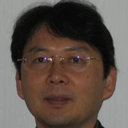Resveratrol reverses remodeling in hearts with large, old myocardial infarctions through enhanced autophagy-activating AMP kinase pathway.
Mots clés
Abstrait
We investigated the effect of resveratrol, a popular natural polyphenolic compound with antioxidant and proautophagic actions, on postinfarction heart failure. Myocardial infarction was induced in mice by left coronary artery ligation. Four weeks postinfarction, when heart failure was established, the surviving mice were started on 2-week treatments with one of the following: vehicle, low- or high-dose resveratrol (5 or 50 mg/kg/day, respectively), chloroquine (an autophagy inhibitor), or high-dose resveratrol plus chloroquine. High-dose resveratrol partially reversed left ventricular dilation (reverse remodeling) and significantly improved cardiac function. Autophagy was augmented in those hearts, as indicated by up-regulation of myocardial microtubule-associated protein-1 light chain 3-II, ATP content, and autophagic vacuoles. The activities of AMP-activated protein kinase and silent information regulator-1 were enhanced in hearts treated with resveratrol, whereas Akt activity and manganese superoxide dismutase expression were unchanged, and the activities of mammalian target of rapamycin and p70 S6 kinase were suppressed. Chloroquine elicited opposite results, including exacerbation of cardiac remodeling associated with a reduction in autophagic activity. When resveratrol and chloroquine were administered together, the effects offset one another. In vitro, compound C (AMP-activated protein kinase inhibitor) suppressed resveratrol-induced autophagy in cardiomyocytes, but did not affect the events evoked by chloroquine. In conclusion, resveratrol is a beneficial pharmacological tool that augments autophagy to bring about reverse remodeling in the postinfarction heart.


